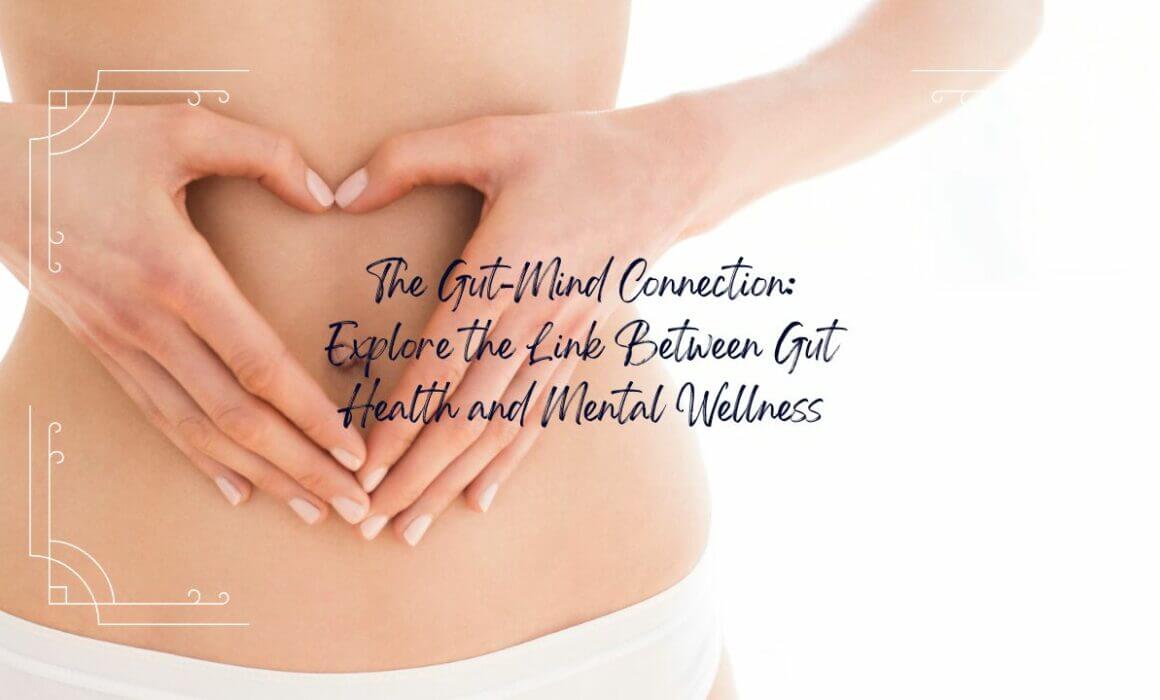Gut Health and Mental Health
The connection between gut health and mental health is an emerging field of study that has gained much attention in recent years. It has been shown that the gut’s health is closely linked to the health of the brain and that imbalances in the gut microbiome can have a profound effect on mental wellness. This article will explore the gut-brain connection, highlighting the key factors that link gut health and mental health, and provide practical tips to support and promote mental wellness.
What is Gut Health?
The gut is an intricate system that begins at the mouth and ends at the anus and is responsible for digesting food, absorbing nutrients, and eliminating waste. The gut is home to trillions of microorganisms, including bacteria, viruses, and fungi, collectively known as the gut microbiome. The gut microbiome plays a critical role in maintaining overall health, including the immune system, metabolism, and brain function.
The gut microbiome is highly dynamic and is influenced by a range of factors, including diet, medication, lifestyle, and stress. Beneficial bacteria dominate a balanced gut microbiome, while harmful bacteria are kept in check. When the gut microbiome becomes imbalanced, however, it can lead to a range of health problems, including gastrointestinal issues, autoimmune disorders, and mental health disorders.
What is Mental Health?
Mental health refers to the state of emotional, psychological, and social well-being and is an essential component of overall health. Mental health disorders, such as depression, anxiety, and bipolar disorder, are common and can significantly impact the quality of life. A range of factors, including genetics, life events, and environmental factors, can cause mental health disorders.
Gut Health and Mental Health: How they Interlink
Recent research has revealed a complex and bidirectional relationship between gut health and mental health. Several key factors link gut health and mental health, including the gut-brain axis, inflammation, and the microbiome.
The Gut-Brain Axis explains the interlink between gut health and mental health
The gut-brain axis is a bidirectional communication network between the gut and the brain, which enables the two organs to communicate and influence each other. The gut-brain axis includes the enteric nervous system, a network of neurons that controls the function of the gut, and the central nervous system, which includes the brain and spinal cord.
The gut-brain axis plays a critical role in regulating mood, cognition, and behavior. Studies have shown that imbalances in the gut microbiome can disrupt the gut-brain axis, leading to changes in brain function and behavior. For example, research has found that individuals with depression and anxiety have an altered gut microbiome composition, with decreased levels of beneficial bacteria and increased levels of harmful bacteria.
Inflammation
Inflammation is a natural response of the immune system to injury or infection. However, chronic inflammation can lead to various health problems, including mental health disorders. Chronic inflammation can disrupt the gut microbiome, leading to various health problems, including depression and anxiety.
Research has shown that individuals with depression and anxiety have higher levels of inflammatory markers in their blood, indicating that chronic inflammation may contribute to these disorders. In addition, studies have found that anti-inflammatory interventions, such as probiotics and anti-inflammatory diets, can improve symptoms of depression and anxiety.
The Microbiome
The gut microbiome is a complex ecosystem that includes trillions of microorganisms, including bacteria, viruses, and fungi. The gut microbiome plays a critical role in regulating the immune system, metabolism, and brain function. Imbalances in the gut microbiome, such as dysbiosis, can lead to a range of health problems, including mental health disorders.
Research has shown that individuals with mental health disorders, such as depression and anxiety, have an altered gut microbiome composition, with lower levels of beneficial bacteria and higher levels of harmful bacteria. In addition, studies have found that interventions to improve gut health, such as probiotics, prebiotics, and a healthy diet, can positively impact mental health. For example, one study found that probiotics improved symptoms of depression and anxiety in individuals with irritable bowel syndrome.
Practical Tips to Support Gut Health and Promote Mental Wellness
Maintaining a healthy microbiome is essential for overall health, including mental wellness. Here are some practical tips:
- Eat a healthy diet rich in fiber, fruits, vegetables, and whole grains.
- Limit intake of processed and sugary foods, which can disrupt the gut microbiome.
- Incorporate probiotic-rich foods, such as yogurt, kefir, and fermented vegetables, into your diet.
- Consider taking a probiotic supplement to support gut health.
- Manage stress through meditation, yoga, or deep breathing exercises.
- Get regular exercise, which has been shown to positively impact gut health and mental wellness.
- Limit the use of antibiotics and other medications that can disrupt the gut microbiome.
- Seek support from a healthcare professional if you are experiencing symptoms of mental health disorders.
- Explore self-hypnosis or working with a hypnotherapist. Hypnosis has been proven to be beneficial for healing your gut. Extensive research shows gut-directed hypnotherapy to be very beneficial when working with issues like IBS.
Conclusion
The gut-mind connection is a fascinating and emerging field of study, highlighting the important relationship between gut health and mental wellness. The gut-brain axis, inflammation, and the microbiome are vital factors that link gut health and mental health. By taking steps to support gut health, such as eating a healthy diet, managing stress, and incorporating probiotics, we can promote mental wellness and improve overall health.


